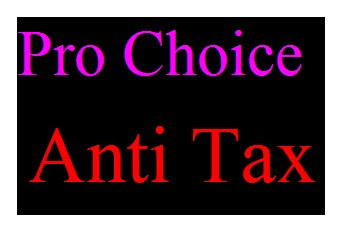The Drug War Comes To Obama Care
David Rittgers at National Review takes a look at how a Supreme Court decision on the Drug War is being used to justify the individual mandate in the recently passed Health Care Bill. Here are Dave's opening remarks:
If the generation of “limited government” lawmakers freshly chosen to man the trenches in Washington wishes to be taken seriously, the butcher’s bill must include some of the social conservatives’ sacred cows.And that brings us to the Central Point. How do conservatives justify the Drug War without a Constitutional Amendment like the one needed for alcohol prohibition?
Starting with the War on Drugs.
Well Commerce Clause Jurisprudence starting with Wickard vs. Filburn does the trick. David begins his explanation:
Many conservatives have long argued that the federal government is broadly empowered to prosecute the drug war under Congress’s authority over interstate commerce. In the name of the drug war, they have been willing to allow federal law-enforcement officers to prosecute seriously ill patients who use medical marijuana in compliance with their states’ laws.Ah yes. The Raich decision.
Many of those same conservatives are now finding that the terrible, swift sword of expansive federal power that they endorsed in the name of drug prohibition has now been turned on them in the form of Obamacare’s individual mandate.
The Justice Department is defending Obamacare by asserting that a 2005 Supreme Court case, Gonzales v. Raich, permits such a broad reading of the Commerce Clause that the federal government can tell individual citizens that they have to buy health insurance.
Let me give you the short version. Angel Raich and Diane Monson were growing medical marijuana to ease Angel Raich's pain from an inoperable brain tumor and several other conditions caused by that tumor. Justice Thomas wrote a brilliant dissent in that case. Let me quote a part of it.
Respondents Diane Monson and Angel Raich use marijuana that has never been bought or sold, that has never crossed state lines, and that has had no demonstrable effect on the national market for marijuana. If Congress can regulate this under the Commerce Clause, then it can regulate virtually anything–and the Federal Government is no longer one of limited and enumerated powers.And there you have it. Conservatives cheered when Raich lost her case.
And here is David's final comment on Obamacare/Raich:
The jump from Raich to Obamacare is a short one, at least in the government’s eyes. The dissenters in Raich predicted the expansion of Commerce Clause authority. Justice Thomas warned that if the federal government could override a state’s licensing of medical marijuana, “then it can regulate virtually anything — and the Federal Government is no longer one of limited and enumerated powers.” Justice O’Connor noted the “perverse incentive to legislate broadly pursuant to the Commerce Clause” — the more broadly Congress writes a law, the more likely Raich’s logic is to uphold it. O’Connor discussed how the Court’s logic would allow the government to regulate (and ban) non-commercial activities that would detract from regulated markets, such as home-care substitutes for daycare. This would be funny, if a federal judge had not just ruled that being alive and breathing means you must buy health insurance or face the consequences.No money changed hands in Raich and that affected Interstate Commerce. The same argument will be used to justify Obama Care. If you don't buy insurance you will be affecting Interstate Commerce. I don't see how you get around that.
A principled stand on the limits of federal power does not begin and end with health care. The Commerce Clause is a double-edged sword: Conservatives cannot wield it in the drug war without making it a useful tool for advancing progressive visions of federal power.
Which means that we can not depend on the courts to save us. Now it is up to the legislature. But that means the end of the Republic. Because we are now subject to what ever laws the current or next Congress passes. We are now unprotected from the naked power of the State and the vote of the legislature. The era of limited government is over. Finito. It was nice while it lasted.
And all because Social Conservatives like Scalia hate drugs. Way to go guys. And for those of you who are of a social conservative bent may I remind you that wrath is a deadly sin. Is it ever.
Here is a book that covers Wickard and some other cases:
The Dirty Dozen: How Twelve Supreme Court Cases Radically Expanded Government and Eroded Freedom
Cross Posted at Classical Values













1 comment:
That's why it's critical to get a new Amendment defining some limits to the Commerce Clause. It's going to take 40 years before the public is ready for that, though.
Post a Comment